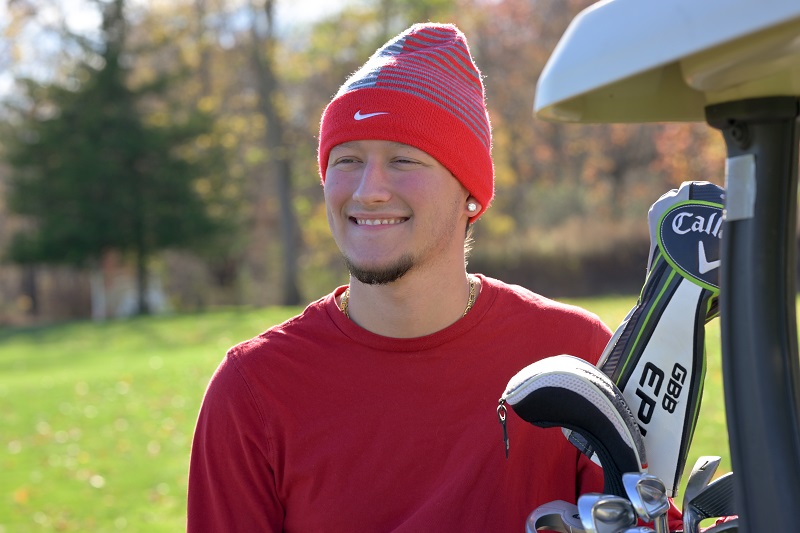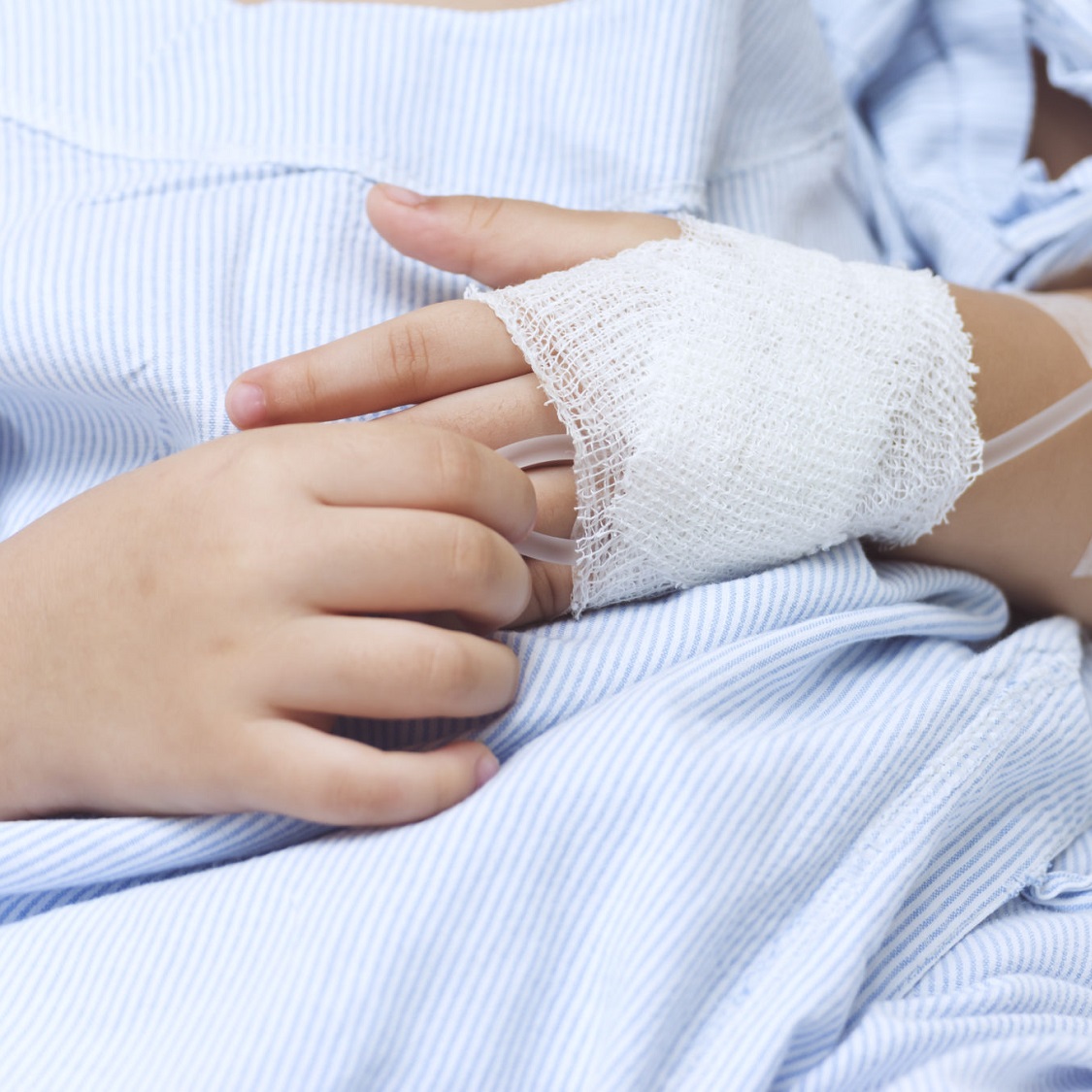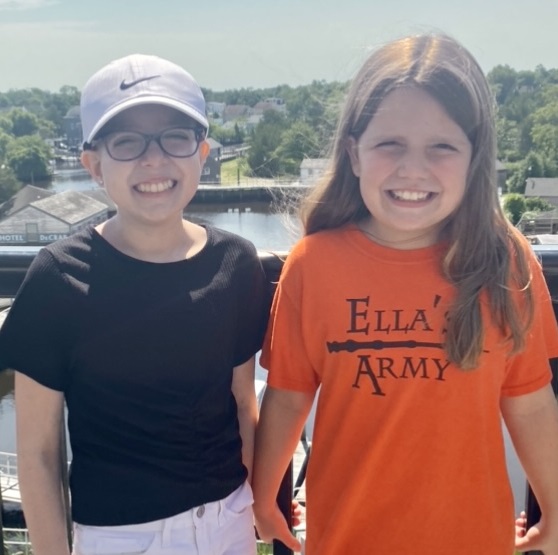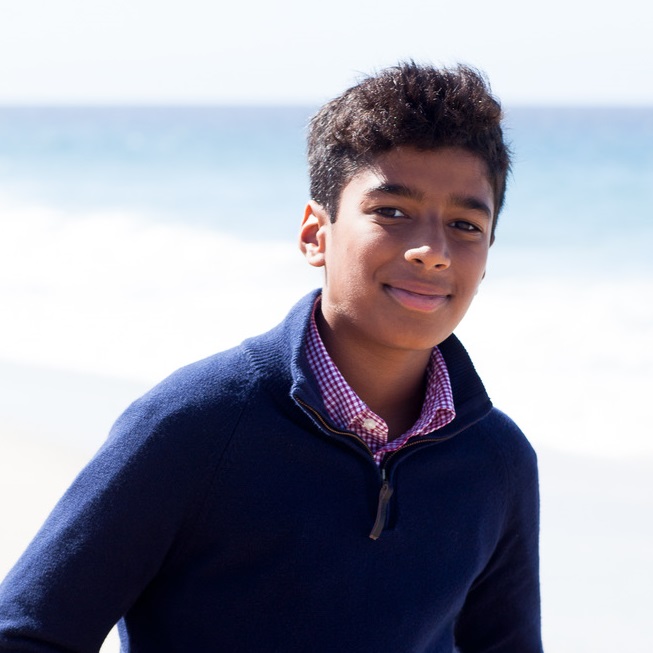

Finding out you have cancer isn’t one of the momentous experiences you expect in your senior year of high school. But that’s what happened to 18-year-old Freehold Township, New Jersey, resident Michael Mancusi.
An athlete who played baseball and football and lifted weights, Michael first noticed a strange bump on his upper thigh at the beginning of his senior year in high school. He was lifting weights and felt some pain in his groin area. Gingerly feeling around to see if everything was OK, he saw what looked like a small bug bite. It wasn’t irritated or sore, so he didn’t give it much thought.
However, that innocuous-looking bump grew as time went by. Michael’s girlfriend urged him to tell his parents about it, and after six months, he finally did.
The family made an appointment with Michael’s pediatrician, who ordered an ultrasound and referred Michael to Mark Kayton, M.D., a pediatric surgeon who is division chief of pediatric surgery at K. Hovnanian Children’s Hospital at Jersey Shore University Medical Center and specializes in treating pediatric sarcomas, cancerous tumors that develop in bone and tissues such as the muscles.
A Rare Cancer Finding
During their first office visit, Dr. Kayton thought the lump in Michael’s thigh could be cancerous. “Although my hunch wasn't proven at the time, I had a feeling in my heart that Michael's coming to me was meant to be,” he says.
A biopsy revealed that Michael had rhabdomyosarcoma, a rare cancer in children and adolescents. Fortunately, resources to treat such a rare cancer were available at the Children's Hospital.
Dr. Kayton assembled a multidisciplinary care team including Jessica Scerbo, M.D., a pediatric hematologist-oncologist, to manage Michael’s chemotherapy treatment; Valdis Lelkes, M.D., an orthopedic surgeon to remove the tumor from a highly complex area of the body; and Michael Rose, M.D., a plastic surgeon who used advanced reconstructive surgery techniques to preserve the appearance of Michael’s leg and his ability to use it fully.
Key to ensuring the best post-surgical treatment plan for Michael was determining what subtype of rhabdomyosarcoma Michael had, says Dr. Scerbo. To make that determination, genetic testing of the tumor tissue was performed.
Additional testing, including a sentinel lymph node biopsy, was done to find out if the cancer had spread. Sentinel lymph node biopsy is a procedure that is done commonly in adults but not often in pediatric patients. Only a few pediatric surgical oncologists in the country—Dr. Kayton among them—have significant experience doing them. Testing results showed that, fortunately, the cancer had not spread.
Enjoying His Senior Year
While waiting for the results of the genetic testing, the surgical team removed the tumor from Michael’s thigh. Because the tumor was fully removed, he did not need radiation.
Fortunately, the genetic testing results came in before chemotherapy began. “Having that information up front, we were able to shorten his chemotherapy regime,” Dr. Scerbo says.
While Michael’s chemotherapy has been a rough experience for him, his care team worked with him to ensure he could enjoy his final year of high school as much as possible, which meant a lot. “They were fantastic with us,” Michael’s mom, Pam, says. “They totally understood and said, ‘We’ll figure it out.’”
Michael was able to go to his senior prom and graduation, and as he neared the end of his chemotherapy, he returned to physical activity with a sport he never imagined he’d take up: golf.
“My dad’s always been into golf,” Michael says. But he resisted his father’s efforts to get him to play with him. “I hadn’t played a sport in a while, and I missed being competitive. I was like, ‘You know, why not?’”
His dad is thrilled—even when his son beats him.
Next Steps & Resources:
- Meet our sources: Jessica Scerbo, M.D., Mark Kayton, M.D. and Valdis Lelkes, M.D.
- To make an appointment with a pediatric specialist near you, call 800-822-8905 or visit our website
- For a bone cancer and sarcoma specialist who treats children and adults, call 800-822-8905 or visit our website.

Why Do Kids Get Cancer?

Supporting Siblings of Children with Childhood Cancer

Dream Machine: Pediatric Robotic Surgery
